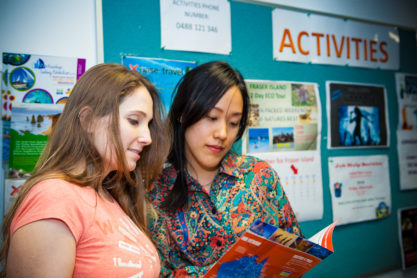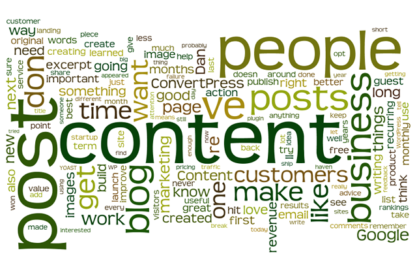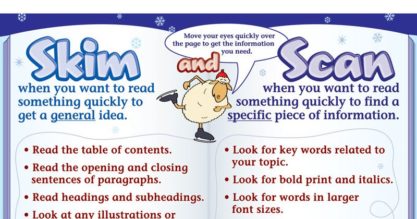 Hi, I’m Danni and I’ve been a teacher at Langports Sydney for the past two years. Having been lucky enough to teach students from lots of different countries and at all levels, I can’t recommend reading enough, especially to those students studying exam classes such as IELTS, Cambridge or TOEIC.
Hi, I’m Danni and I’ve been a teacher at Langports Sydney for the past two years. Having been lucky enough to teach students from lots of different countries and at all levels, I can’t recommend reading enough, especially to those students studying exam classes such as IELTS, Cambridge or TOEIC.
What is it about reading?
That is so important for language learning and why should you be doing it? Reading has a huge impact on language acquisition – particularly your writing skills, although interestingly linguists aren’t exactly sure how this happens. But it makes sense that the more vocabulary, sentences and grammar structures that you are exposed to through reading, the more you will potentially use in speaking and writing. Although teachers often recommend watching movies with English subtitles, reading provides a great deal more language in the same period of time.


Top reading tips:
Many students tell me they don’t really enjoy reading and rarely do it in their own language. However, that doesn’t mean you can’t learn to be a good reader in English. Here are some tips to help you get started:
1.Firstly, and most importantly, read about things you are interested in. If the topic of a text appeals to you, it will be much more engaging. Whether you prefer biographies, fashion magazines, scientific journals or blogs, in this age of technological advancement, you can find a wide range of free texts about almost anything online.


2. Make use of your Langports library – they are well-stocked with specially adapted books for readers of all levels. Contrary to what you might think, they’re not children’s books, but many of them are popular classics which have been shortened and rewritten in simpler language. Your teachers are always more than happy to help you find the right book 🙂

3. Take advantage of the written word around you – read anything and everything: street signs, billboards, free supermarket magazines (Coles publishes a free monthly magazine with recipes and health articles) and food labels etc.


4. Read books that you have previously enjoyed in your first language – having background knowledge of the storyline and characters can make reading a little easier while still enabling you to absorb some new vocabulary and grammar structures. There are also free e-reader apps available for your mobile phone such as Kindle or iBooks, where you may find free or very cheap books available to download online.


5. Use websites such as BBC One Minute World News to find out about current news stories, with subtitle support. This features means you can re-read sentences if you need to and look up any specialist vocabulary.

Dealing with exam texts:
Those of you who are currently preparing for an English exam already know that exam texts require more negotiation than the texts you might read for pleasure. There are some helpful strategies you can use to approach questions related to a text without becoming overwhelmed by complex vocabulary.
- Always look at the headings of texts as well as the layout – they can provide clues as to what the content of the text might be and assist you in making some predictions about the content.
- Identify the question type you are dealing with – many questions do not require whole-text reading, but often focus on a specific part of the text. Underline key words in questions to help determine where you need to look in a text to find the information you need. Content words like names of people, places and objects, dates and nouns, verbs, adjectives and adverbs are more important than function words like prepositions, articles and auxiliary verbs.
- Ignore unknown words or try to guess the meaning from the context of a sentence. Prefixes or suffixes can sometimes help you to decide whether a word has positive or negative connotations and which part of speech it belongs to. Avoid spending too long trying to understand vocabulary that really makes no sense though, as this wastes valuable time.
- When you are asked about the writer’s opinion in a text, analyse the statements you are given – remembering that ideas are likely to be expressed using paraphrase and synonyms rather than in the same words as the question.
- For summary questions, firstly look at the grammar of the sentences – are you looking for a noun, verb, adjective or adverb? By taking the time to understand sentence structure, you have a much higher chance of answering correctly.
- Learn to skim read texts (also known as reading for gist or the main ideas) and how to scan for specific information that will enable you to answer a question.



Above all, try not to be intimidated by reading, especially academic texts. Many of these texts would also likely present some challenges in your own language. It can take a significant amount of time to become a competent reader, so be patient with yourself.
So to sum up, not only does regular reading help you to become a more proficient reader, it has a positive effect on all your English skills, helping you to learn more quickly than a non-reader. We want you to graduate from Langports feeling confident that you have made maximum progress in the time you have available. Just 10-20 minutes of reading each day can lead to noticeable improvement.
Good luck!
Related Topics:
Advantages of using a dictionary: http://www.langports.com/make-dictionary-friend-stop-relying-google-translate/
How to master your presentation: http://www.langports.com/how-to-master-your-presentation/
How you can improve your English: http://www.langports.com/can-improve-english/